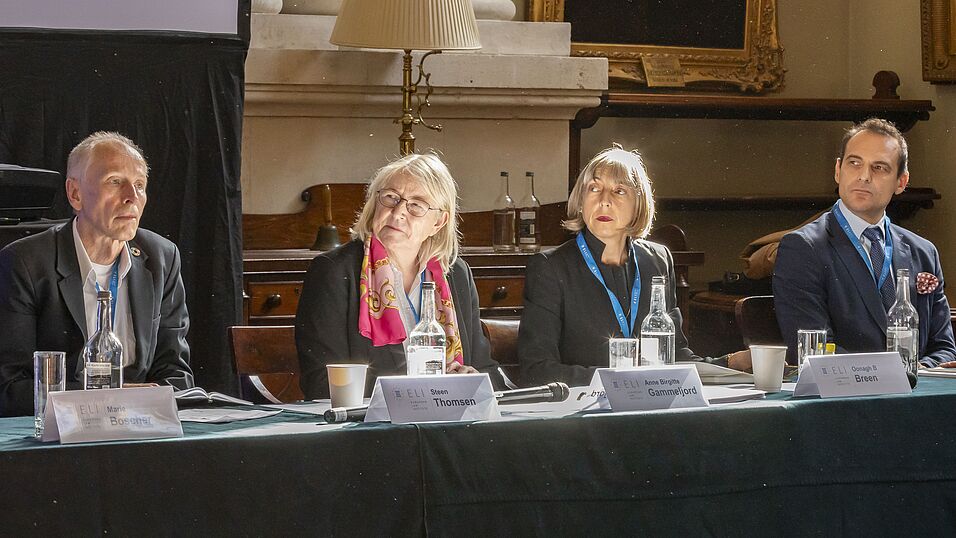In an era in which businesses are increasingly shaping societal outcomes, legal frameworks must evolve to support this responsibility. Experts participating to the panel discussed the critical role of enterprise foundations in Europe’s legal landscape and the development of a model law to enhance their operations across borders. The panel was chaired by Anne Birgitte Gammeljord (ELI Vice-President; Lawyer, Rovsing & Gammeljord)
At the session, Steen Thomsen (Project Co-Reporter; Professor, Copenhagen Business School), introduced the key components of the ELI Enterprise Foundations project, including the draft model law. He outlined the importance of a clear legal definition for enterprise foundations, which hold controlling interests in business companies.
Among other things, Daniel Damjanović (Member of the Foundation Council, Interogo Foundation), reflected on Liechtenstein’s robust foundation law as a model for Europe, noting its influence on other jurisdictions.
Marie Boscher (Policy Officer, European Commission, DG GROW), provided a European Commission perspective, highlighting the role of enterprise foundations in fostering sustainable prosperity and competitiveness and thus supporting EU goals.
Oonagh B Breen (Professor, University College Dublin), offered a common law perspective, addressing the challenges of implementing foundation laws in jurisdictions where the legal concept of a foundation is less established. She underscored the importance of a flexible approach to ensure broad applicability across different legal systems.
As the panel concluded, it was clear that enterprise foundations have the potential to play a transformative role in European business and society. ELI remains committed to advancing this legal framework, with the next phase including further consultation and refinement of the draft law. Stay engaged with ELI as the team continues to lead innovative discussions in the field. For more information about the project, please refer to this link.

